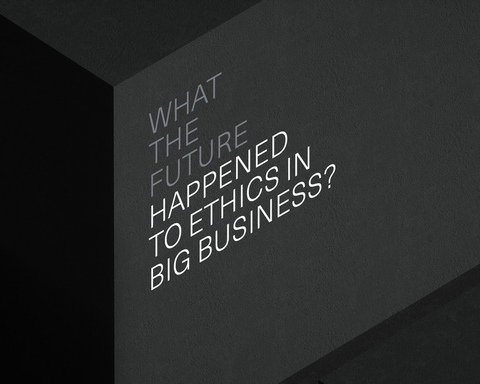Written by
Published
Category
Key topics
How do we ensure effective collaboration in a digitally transformed world? Professor Sankalp Chaturvedi outlines three core principles for business leaders to consider
The business world was already changing pre-pandemic, with digital working in the US growing by 159 per cent since 2005. Then came coronavirus (COVID-19), and seven or eight years of digital transformation were condensed into one. The pandemic has changed our world, and some changes will stay long term.
Virtually overnight companies have had to adapt to a new and often unfamiliar way of working, and they have done so, with meetings migrating online, teams working together in a virtual space and many other aspects of business changing too. There’s a sense that we have all become more efficient as we cram multiple meetings into an even longer working day. But is this an illusion of efficiency?
Meetings need structure to ensure they don’t become a waste of time. This becomes even more important in the hybrid world
Team meetings are central to much informed decision-making. But even pre-pandemic there was a concern that for many people, meetings were often pointless, a waste of time (and money), and to be avoided at all costs. Doodle has analysed the meetings that took place using its scheduling tools over the last few years, and found that – of the 19 million meetings held across the US, Germany, Switzerland and the UK in 2019 – two thirds were considered pointless by those involved, costing a staggering $541bn.
The future remains unpredictable, but most companies are considering a hybrid of physical and virtual working, tapping into the benefits of technology, and offering more flexibility for leaders and employees alike. This impacts not only on meetings but on the central role of teamwork and collaboration.
So, in this new hybrid world of flexi-working, with a mix of face-to-face and virtual meetings, what do business leaders need to consider in terms of their role going forwards? How will they adapt?
I believe leaders need to home in on three core principles.
A hybrid world requires empathy
Never before have leaders needed to be so adaptable and flexible. The ability to empathise and to build and manage relationships in the real world can be hard enough. But in the virtual world, when so many of the cues we need to read are limited by a Zoom or Teams screen, it’s that much harder.
Virtual charisma requires dialled-up energy levels, clear and simple messages, and a skillset more akin to actors
Empathising virtually will be one of the biggest challenges in this transformed world. We can’t read body language as easily, we can’t demonstrate that we are looking directly at someone and actively listening, and we can’t easily tell when someone else has disengaged or is distracted by something in their own surroundings. Virtual charisma requires dialled-up energy levels, clear and simple messages, and a skillset more akin to actors engaging effectively with a virtual TV or cinema audience.
Digital transformation also makes room for more unintentional biases to creep in. Leaders therefore need to work even harder to allow individuals to disagree without being disagreeable, to ensure that the extroverts don’t loom large over the introverts, and to create a safe space for the best ideas to shine rather than those that are simply well-articulated or promoted most loudly.
We need to rethink how we collaborate
Efficient businesses rely on strong teamwork, but the pandemic and this new hybrid world have forced us to build virtual teams. New staff have often had to build exclusively online relationships as they get their feet under a virtual table. There are still many unknowns and much anxiety.
Companies are all creating their own new normal, some allowing more flexibility than others. Leaders will need to think how best to protect long-term relationships with their employees, motivating and supporting without the intangible benefits of physical proximity: the chats at the water cooler, the impromptu catchups, the social drink after work.
Investing in getting teamwork and meetings right will be the biggest challenge with the greatest rewards
It will be necessary for all leaders to rethink how teamwork can adapt within their own business, thus creating a new version of teamwork and replacing the pointless with the positive.
Attention is limited and time is scarce
Meetings, whether physical or virtual, need structure to ensure they don’t become a waste of everyone’s time. This becomes even more important in the hybrid world. Attention dissipates quickly on-screen.
Before a meeting is even organised, consideration must be given to its purpose, who needs to be involved, if leaders have the skills required, and whether there is a better way to approach it.
Participants must prepare and come ready to contribute. The agenda must be short and specific. The purpose of the meeting must be clearly defined, and must have an end goal so that all involved leave feeling that it has been successful.
We face a constantly changing future, so adaptability and flexibility must be the watchwords of any future leader. Meetings and teamwork are central to business success; investing in getting them right in this new hybrid world will be the biggest challenge with the greatest rewards.
We’re in this together, whether physically or virtually, and we must plan to be future ready, for everyone’s benefit.





